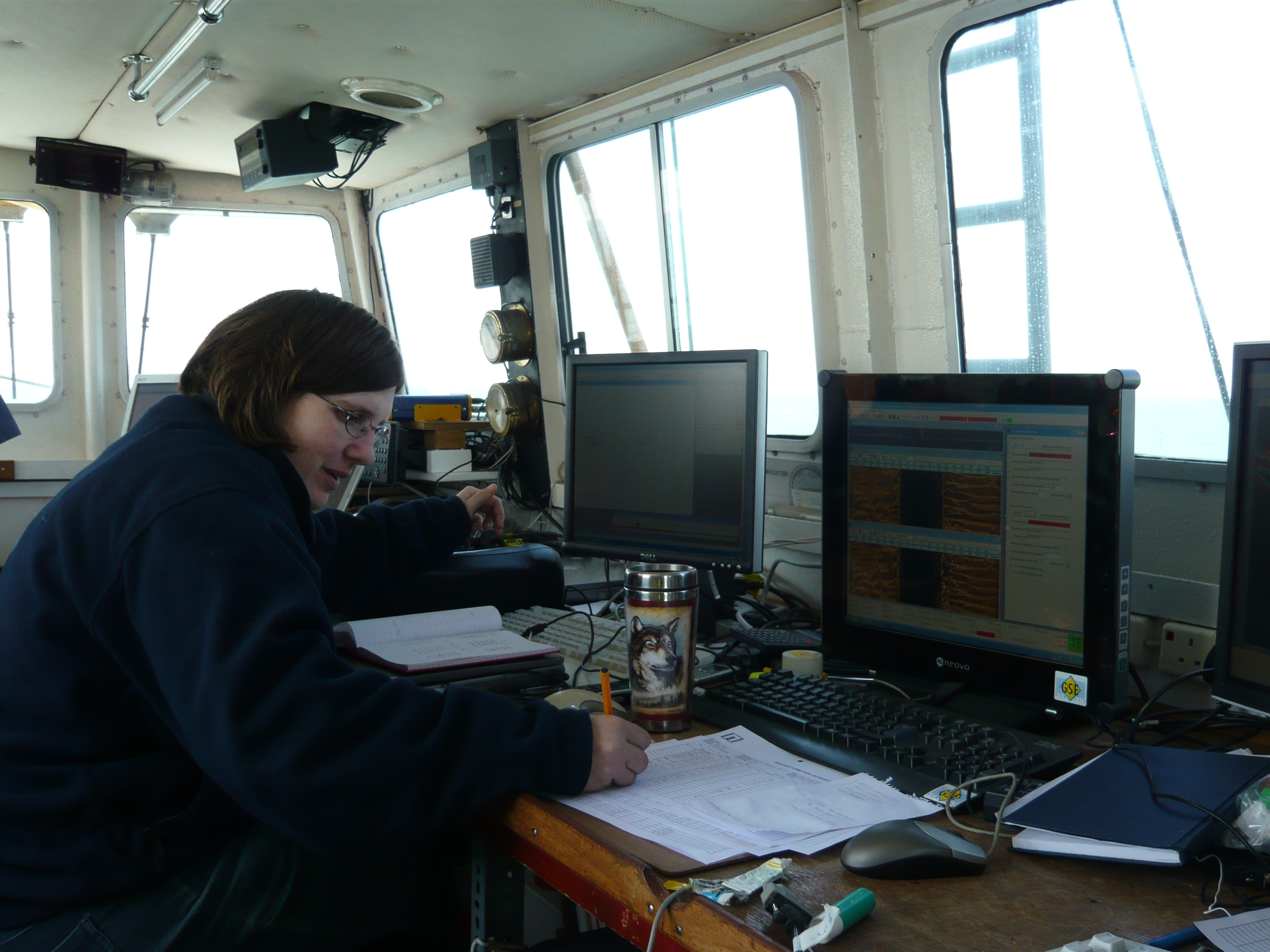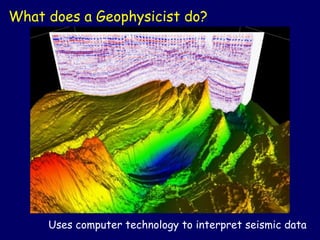All Categories
Featured
Table of Contents
Geophysicist Job Description: Salary, Duties, & More in Hamersley Western Australia 2023

The main design for the radial structure of the interior of the Earth is the preliminary recommendation Earth design (PREM). Some parts of this model have actually been upgraded by recent findings in mineral physics (see post-perovskite) and supplemented by seismic tomography. The mantle is mainly made up of silicates, and the borders in between layers of the mantle are constant with phase transitions.

Schematic of Earth's magnetosphere. Circulations from left to.
Inside the magnetosphere, there are reasonably dense regions of solar wind particles called the Van Allen radiation belts. Geophysical measurements are generally at a specific time and place.
How To Become A Geologist Or Geophysicist in Mirrabooka Oz 2022
A three-dimensional position is computed using messages from 4 or more noticeable satellites and referred to the 1980 Geodetic Recommendation System. An alternative, optical astronomy, combines astronomical collaborates and the regional gravity vector to get geodetic coordinates. This approach only offers the position in 2 collaborates and is harder to use than GPS.
Gravity measurements ended up being part of geodesy because they were required to related measurements at the surface area of the Earth to the referral coordinate system.
Satellites in space have actually made it possible to collect data from not only the visible light area, however in other locations of the electromagnetic spectrum. The worlds can be identified by their force fields: gravity and their magnetic fields, which are studied through geophysics and area physics. Determining the modifications in acceleration experienced by spacecraft as they orbit has enabled great information of the gravity fields of the planets to be mapped.
Marine Geology And Geophysics in Wexcombe Oz 2023

Considering that geophysics is worried with the shape of the Earth, and by extension the mapping of features around and in the planet, geophysical measurements consist of high accuracy GPS measurements. As soon as the geophysical measurements have been processed and inverted, the analyzed outcomes are plotted utilizing GIS.
Numerous geophysics companies have created in-house geophysics programs that pre-date Arc, GIS and Geo, Soft in order to fulfill the visualization requirements of a geophysical dataset. Expedition geophysics is applied geophysics that frequently utilizes remote picking up platforms such as; satellites, airplane, ships, boats, rovers, drones, borehole sensing equipment, and seismic receivers.
For circumstances, aeromagnetic data (airplane collected magnetic information) collected using standard fixed-wing aircraft platforms need to be corrected for electromagnetic eddy currents that are created as the aircraft moves through Earth's magnetic field. There are likewise corrections associated with modifications in determined possible field intensity as the Earth rotates, as the Earth orbits the Sun, and as the moon orbits the Earth.
Geophysical Engineering Undergraduate Program in Currambine Oz 2020
Signal processing includes the correction of time-series data for undesirable noise or mistakes presented by the measurement platform, such as aircraft vibrations in gravity data. It also involves the reduction of sources of sound, such as diurnal corrections in magnetic information. In seismic information, electromagnetic information, and gravity data, processing continues after error corrections to consist of computational geophysics which lead to the last analysis of the geophysical information into a geological interpretation of the geophysical measurements Geophysics became a separate discipline only in the 19th century, from the crossway of physical geography, geology, astronomy, meteorology, and physics.
The magnetic compass existed in China back as far as the fourth century BC. It was utilized as much for feng shui as for navigation on land. It was not till excellent steel needles could be forged that compasses were utilized for navigation at sea; prior to that, they might not keep their magnetism long enough to be beneficial.
By looking at which of 8 toads had the ball, one might figure out the direction of the earthquake.'s (1600 ), a report of a series of careful experiments in magnetism.
Geophysicist Job Description in Kallaroo Australia 2021
In 1687 Isaac Newton released his, which not only laid the structures for classical mechanics and gravitation Likewise discussed a range of geophysical phenomena such as the tides and the precession of the equinox. The first seismometer, an instrument capable of keeping a continuous record of seismic activity, was developed by James Forbes in 1844. Geochemistry, Geophysics, Geosystems. National Aeronautics and Space Administration. Obtained 13 November 2018.
Leipzig. Berlin (Gebruder Borntraeger). Runcorn, S.K, (editor-in-chief), 1967, International dictionary of geophysics:. Pergamon, Oxford, 2 volumes, 1,728 pp., 730 fig Geophysics, 1970, Encyclopaedia Britannica, Vol. 10, p. 202-202 Ross 1995, pp. 236242 Shearer, Peter M. (2009 ). Intro to seismology (2nd ed.). Cambridge: Cambridge University Press. ISBN 9780521708425. Stphane, Sainson (2017 ).
Latest Posts
Geophysical Surveys - U.s. Geological Survey in Wandi Western Australia 2023
Geophysics in Mount Claremont Aus 2020
Geophysical Survey in Casaurina Aus 2020